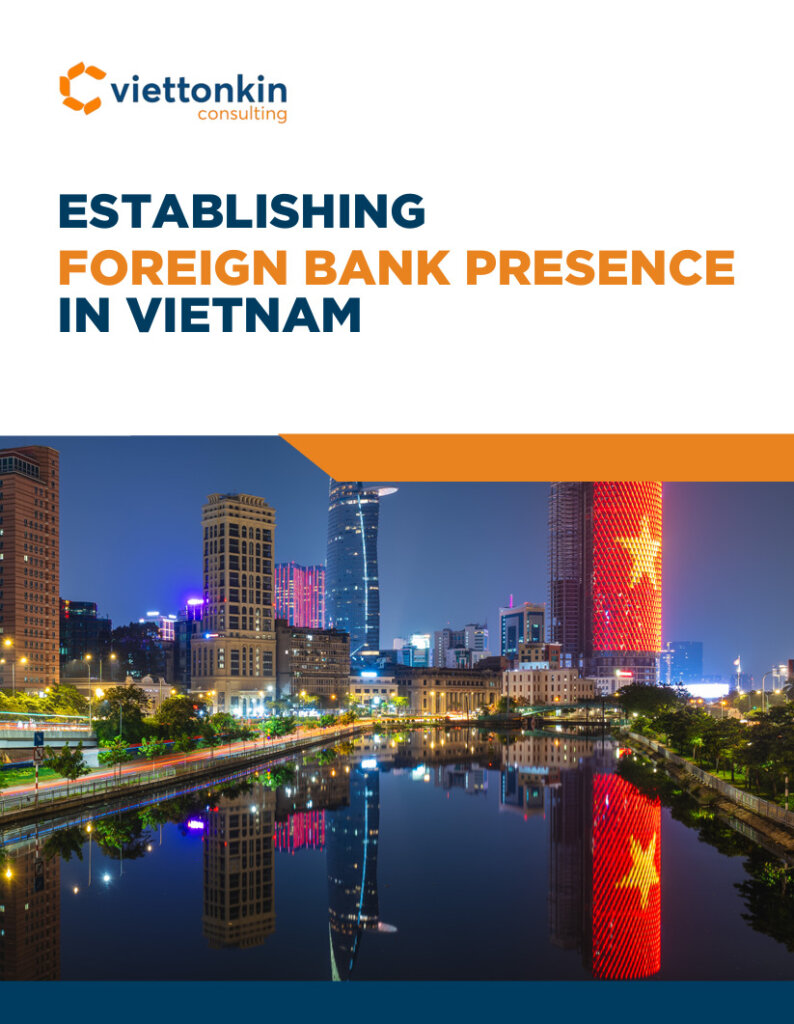According to Investopedia, bad debt is a term referring to an amount of money that a creditor deems to be uncollectible and must write off as a result of a default on the part of the debtor. When businesses make use of credit from banks or other lenders, both parties are always aware of the risk that these credit lines become bad debts, despite low probabilities and naturally the best efforts of both parties to avoid such situations from occurring.
However, in such rare occurrences, investors and business managers should have a comprehensive understanding of the local regulations and practices regarding debts to make the best decisions moving forward. Often, when a debt becomes unpayable, businesses opt for either filing for bankruptcy or working with advisors to restructure the debt and revise their cash flow management, in order to improve business operations and feasibility of repayment.
Bad Debts in Vietnam
In Vietnam, according to the regulations of the State Bank of Vietnam (SBV), debts can be classified into 5 groups as follows:
- Group 1: Qualified debts;
- Group 2: Debts requiring special attention;
- Group 3: Sub-standard debts;
- Group 4: Doubtful debts; and
- Group 5: Potentially irrecoverable debts.
Bad debts, also known as non-performing loans (NPLs), fall into the above-mentioned Groups 3, 4, and 5.
When a business has been confirmed to be in a situation of bad debt, it will be extremely difficult for them to continue borrowing from banks or other credit providers.
Even in the case of successful full repayment of both interest and principal, all information about the borrower, including past loans, current loans, overdue debt periods, the borrower's full name, and the borrower's full address, will continue to be stored and monitored at the Credit Information Center (CIC) for another 03 to 05 years after the final payment is made..
Thus, we strongly advise business owners, especially foreign owners, to avoid getting into bad debts.
Legal Update on Conditions for Offshore Loans
The SBV is working on a draft circular to replace Circular 12/2014/TT-NHNN, which was published in 2014 and regulated the terms for foreign loans applied to businesses that were not government-guaranteed. The new circular would tighten controls on credit institutions' and businesses' foreign borrowing activities, which have been rising quickly in recent years.
3 notable new points about conditions for foreign loans:
- A ceiling on foreign borrowing costs;
- Performing foreign currency derivative transactions to hedge exchange rate risk;
- Requesting the borrower to select a representative organization to manage the collateral, which may be a credit institution, a foreign bank branch, or a legal organization established in Vietnam in the case of a foreign loan with collateral on Vietnamese soil.
In terms of the impact on FDI enterprises, the draft circular is expected to partially solve the problem of "thin capital" of FDI enterprises in Vietnam, which is deeply related to transfer pricing.
In a survey conducted in 2019 by the Ministry of Finance, among 140 businesses examined, all had loans that were more than four times their equity, and all of them were FDI businesses. Mr. Do Thien Anh Tuan (Fulbright University Vietnam) provides an example of a parent company that provides financial services with higher interest rates on the market and allows its subsidiaries and associates to borrow loans. Businesses can use this "trick" to repatriate profits since interest expense is an expense that can be deducted.
According to the draft circular, for short-term foreign loans, the draft stipulates that enterprises are only allowed to take short-term loans to pay debts arising within 12 months from the time of signing the loan agreement, but does not include debts arising from loan contracts with residents, payables arising from buying trading securities, contributing capital to purchase shares, buying investment properties, and receiving project transfers.
The SBV is rumored to have tightened regulations in order to promote economic growth while ensuring that enterprises with strong credit are supported in obtaining the capital they require for both production and operations. Good businesses can still raise capital from credit institutions in their home country or from credit institutions with whom they have a history of mutually beneficial relationships and connections. At the same time, systemic risks from speculative loans and high-risk foreign loans will be avoided thanks to the new regulations.
The regulations also seek to make the domestic financial sector of Vietnam more competitive.
Experience Outstanding Debt Financing Services with Viettonkin
Viettonkin provides a range of cross-border debt financing services, with the goal of assisting and advising our clients in debt restructuring so that their future cash flows and financial situations achieve sustainability. The following is a list of our detailed scope of work
- Examine Client's cash flows and financial situation to make suitable recommendations for effective debt restructuring plans.
- Prepare a restructuring plan and submit it to the lenders after reviewing internally with Client
- Pitching the restructuring plans to lenders, then negotiate and close the deal.
- Complete and organize all related documents for all parties to sign.
- Advise on solutions to meet and maintain investor/lender requirements following loan disbursement.
Viettonkin is confident that with our team of professional specialists, we will be able to assist our clients in successfully completing all of the above steps. For further information, please fill the Contact Us form here and our team will reach out to you at the earliest.
 English
English








